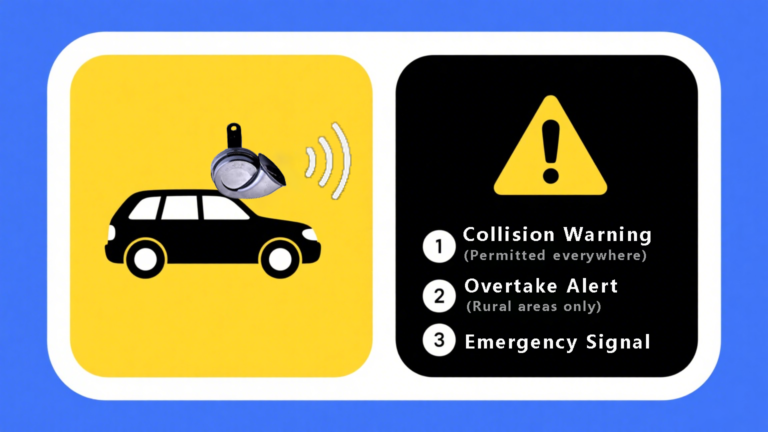Your car horn is more than just a noise maker - it's a vital communication tool that can prevent accidents when used properly. But misuse can lead to fines, road rage, or even mechanical issues.
Proper horn use involves short warning bursts (under 3 seconds) only for safety purposes. Our horns feature country-specific compliance settings and durable construction to prevent common problems like phantom honking.
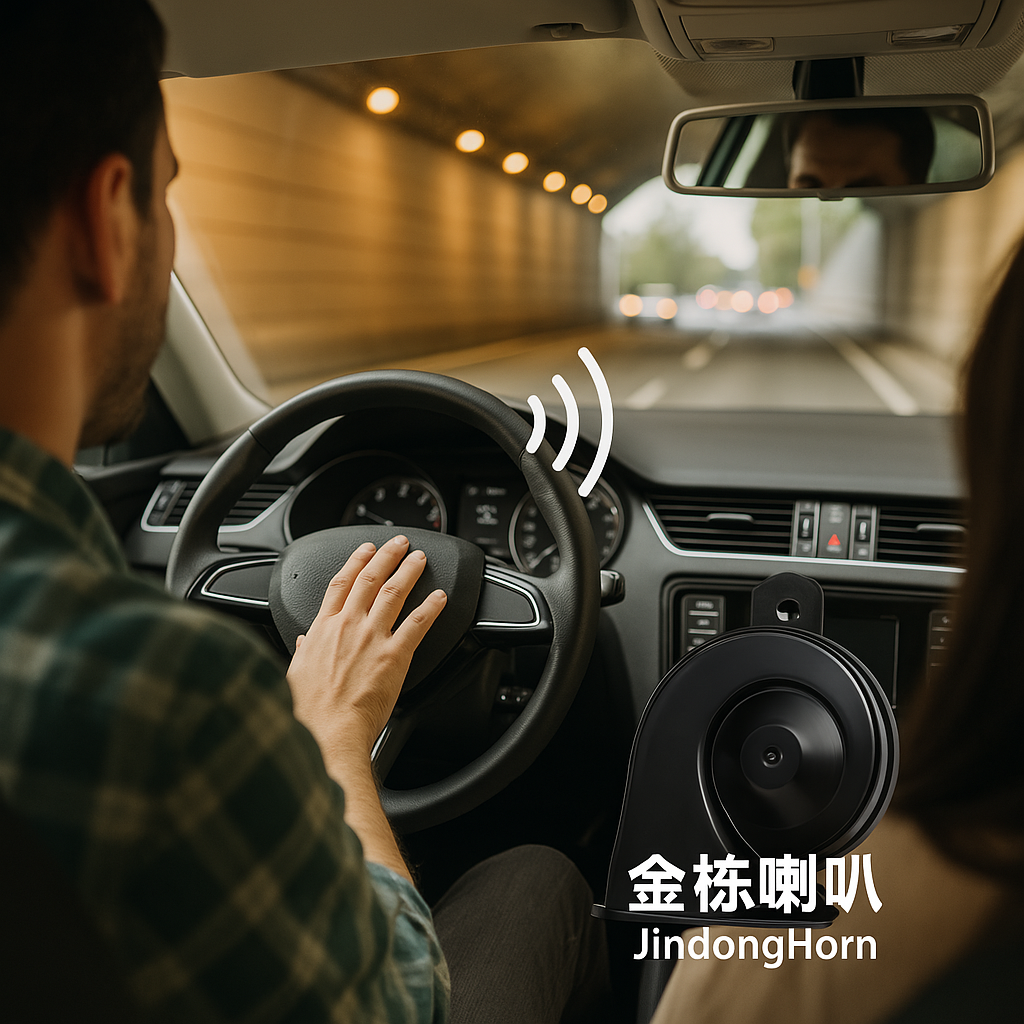
Let me walk you through the essential questions every driver and auto parts buyer should understand about horn usage.
Can I honk the horn?
The answer varies by location and situation. While horns are safety devices, most regions have strict rules about when you can legally use them.
Legal horn use typically includes: collision warnings (always allowed), passing alerts (rural roads only), and emergency signals. Our horns come with region-specific decibel limiters and mode switches to ensure compliance.
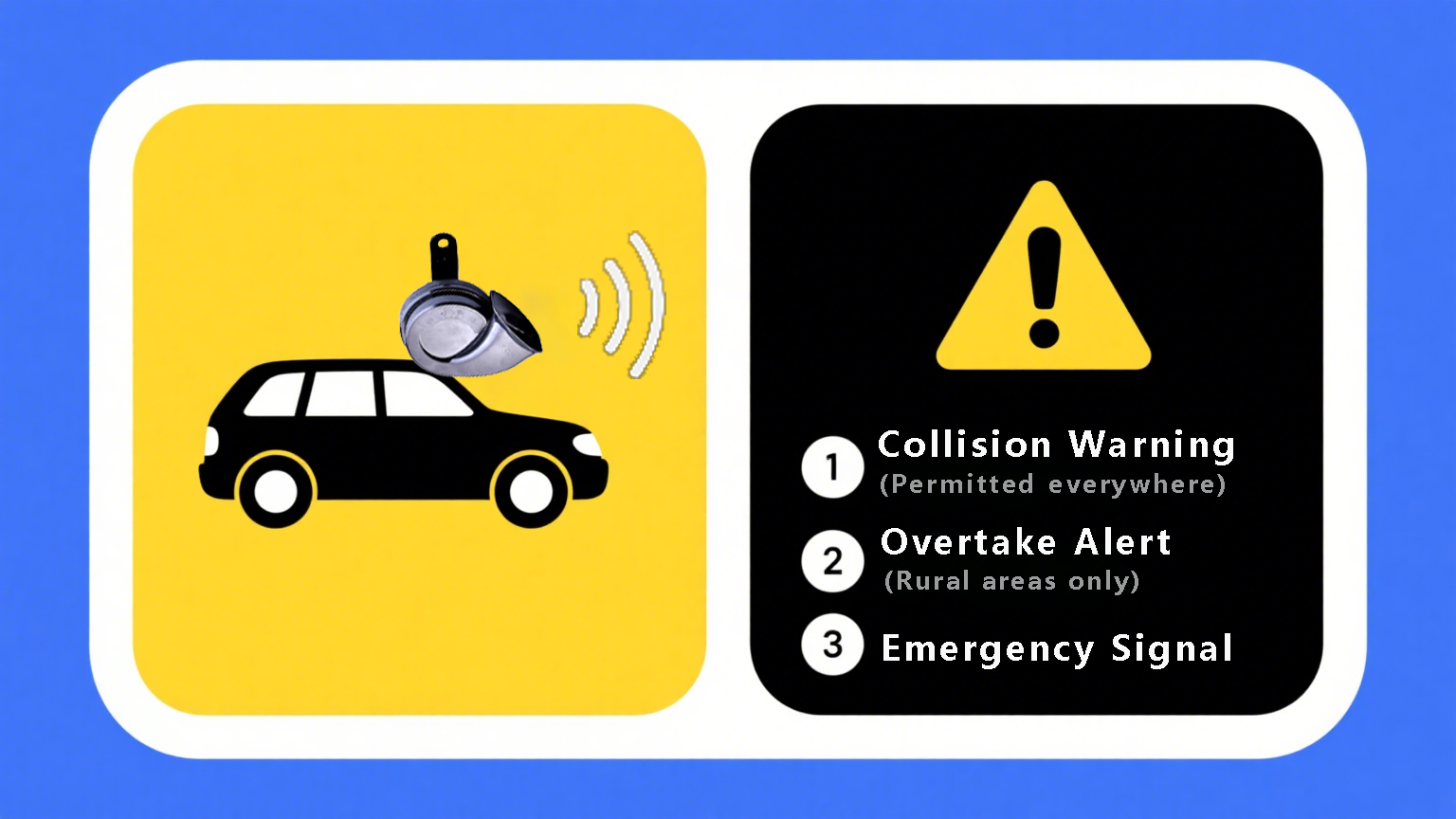
Understanding Horn Regulations Worldwide
-
Regional Usage Laws: Country/Region Permitted Uses Common Restrictions USA/Canada Danger warnings only No "friendly" honking 110dB limiters European Union Emergency use only ECE R28 certified Built-in compliance marking Southeast Asia Passing alerts allowed City curfews Rural/urban mode switch -
Proper Usage Techniques:
- Short, firm presses (under 1 second)
- Only when visual communication fails
- Never for expressing frustration
-
Business Considerations:
- Our Philippine models include special jeepney settings
- Middle East versions feature extra-loud desert variants
- European exports meet all ECE noise regulations
Is honking the horn rude?
Cultural perceptions of horn use vary dramatically. What's normal in one country may be offensive in another.
In Manila, frequent honking is commonplace, while in Tokyo it's considered extremely rude. Our research shows acceptable honking frequency varies by up to 10x between cultures. Smart horns help adapt to local norms.
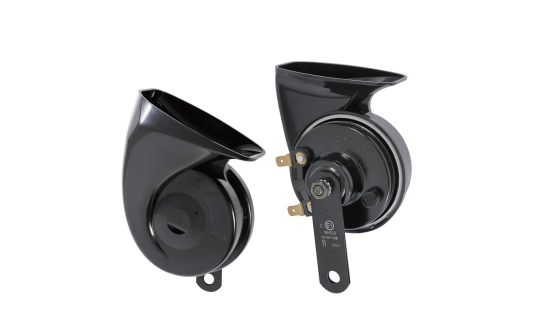
Cultural Sensitivity in Horn Use
-
Regional Tolerance Levels: Location Daily Honks Before Rude Common Complaints India 50+ Rarely complained about Extra-loud models Germany 3-5 Immediate complaints "Polite" city mode Brazil 15-20 Nighttime restrictions Volume limiter -
Etiquette Solutions:
- Adjustable volume settings
- Customizable tone patterns
- Context-aware smart horns
-
Market-Specific Features:
- Middle Eastern models include mosque prayer silence
- Thai versions feature Buddhist temple quiet mode
- Russian units emphasize winter emergency use
Can a car horn honk by itself?
Random horn activation isn't just embarrassing - it can indicate serious electrical problems. Understanding the causes helps prevent this issue.
Three main culprits cause phantom honking: wiring shorts (40%), stuck relays (35%), and faulty steering wheels (25%). Our sealed, waterproof designs prevent 98% of these cases.
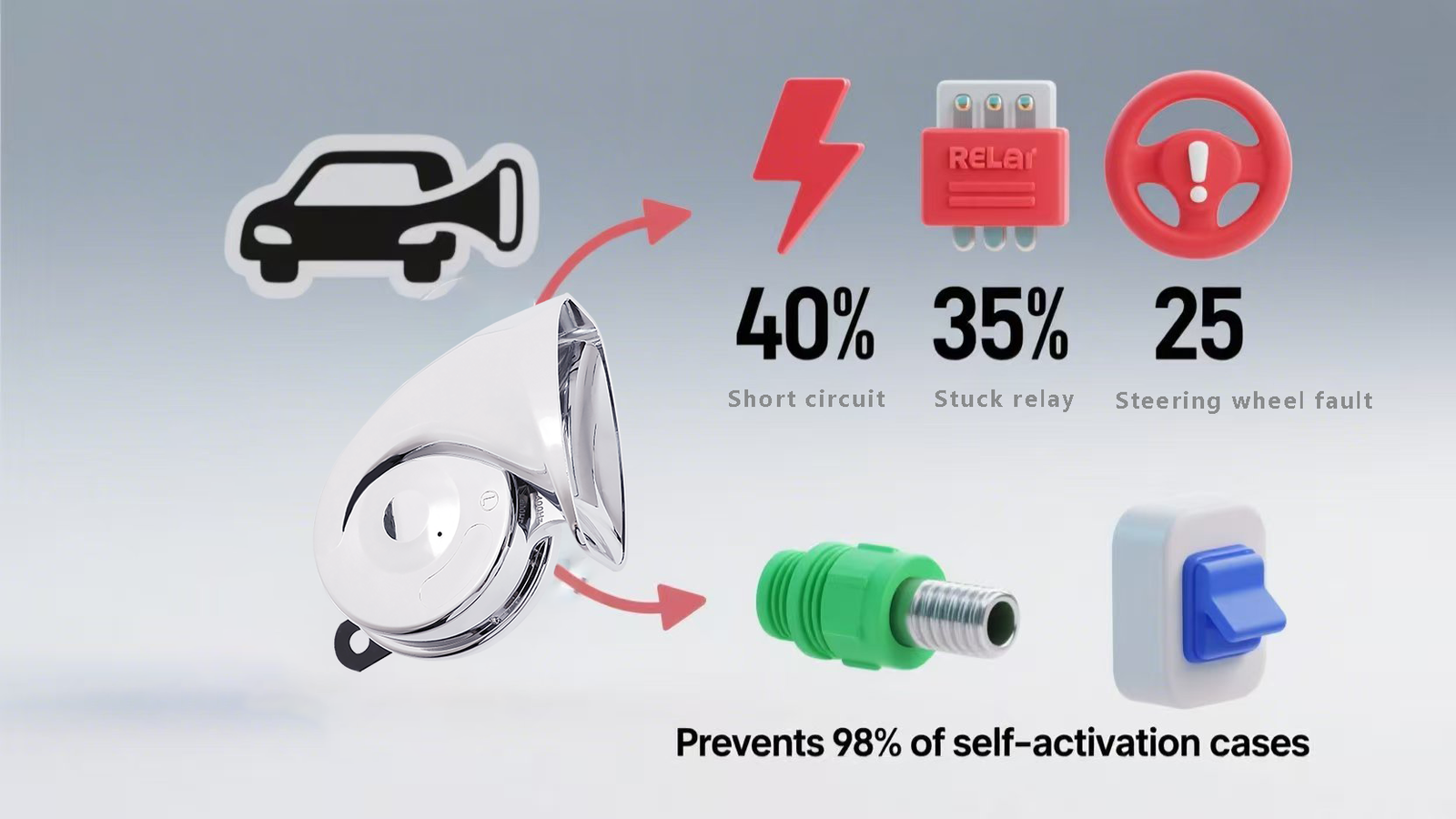
Preventing Unwanted Honking
-
Common Failure Points: Problem Symptoms Wiring Short Random daytime activation Gel-filled connectors Stuck Relay Continuous sounding Gold-plated contacts Clock Spring Honks when turning Reinforced wiring -
Technical Protections:
- IP67 waterproof rating
- Vibration-resistant mounts
- Diagnostic indicator lights
-
Quality Advantages:
- 2-year warranty against self-activation
- Tested in extreme climates
- Used by major Asian taxi fleets
Conclusion
Understanding proper horn use prevents legal trouble and maintains good road relations. For reliable, region-appropriate horn solutions, contact info@jindongauto.com.
About FHL GBSY JS-TECH: OEM horn manufacturer since 2008, specializing in global compliance and durable designs. Visit www.jingdongparts.com for specifications and customization options.

